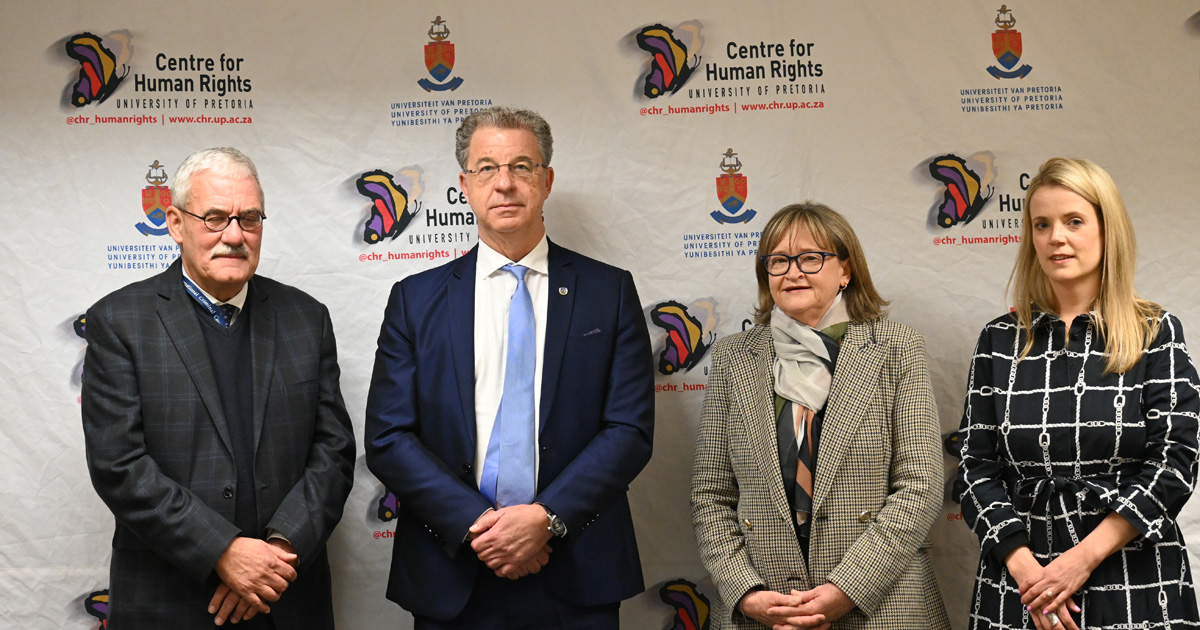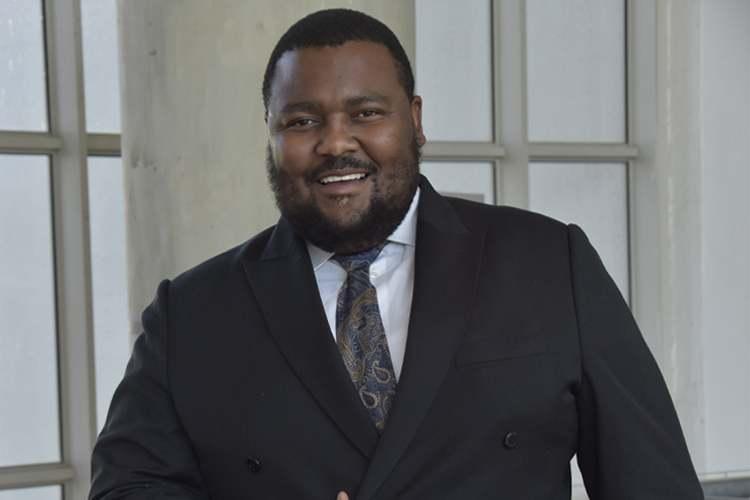On 2 August 2023, the Centre for Human Rights, Faculty of Law at the University of Pretoria co-hosted Dr Serge Brammertz, Chief Prosecutor of the United Nations International Residual Mechanism for Criminal Tribunals. The theme of Dr Brammertz’s lecture was on the development and transformation of international criminal law as a branch of international law, and he also spoke about contemporary issues in the field.
The International Residual Mechanism for Criminal Tribunals was established by the UN in 2010 to continue the mandates of the now-closed International Criminal Tribunal for Rwanda (“ICTR”) and the International Criminal Tribunal for the former Yugoslavia (“ICTY”). These two ad hoc tribunals were tasked with investigating and prosecuting persons responsible for committing genocide, crimes against humanity and war crimes during the armed conflicts of the 1990s that took place in Rwanda and the former Yugoslavia respectively. Over the years, the ICTR and the ICTY were fundamental in developing and transforming the international criminal justice system, and have produced pioneering jurisprudence on international crimes, individual and command responsibility, and sexual and gender-based violence as a weapon and method of genocide and warfare.
Dr Brammertz was appointed Chief Prosecutor of the Mechanism by the United Nations Security Council in 2016. He oversees the Mechanism’s investigators, analysts and prosecutors, and manages its fugitive tracking strategy. He has served in various capacities as investigator and prosecutor of international crimes for decades, notably as the Prosecutor of the ICTY from 2008 until its closure in 2017, Commissioner of the UN International Independent Investigation Commission into former Lebanese Prime Minister Rafik Hariri’s assassination between 2006 and 2007, and as the first Deputy Prosecutor of the International Criminal Court. In that role he initiated the ICC’s first investigations into atrocities committed in Uganda, the Democratic Republic of Congo, as well as Darfur.
One of Dr Brammertz’s most recent successes was tracking down and co-ordinating the arrest of Fulgence Kuyishema in South Africa, where it is estimated that he had been living since 2000. His arrest was the result of managing to obtain the inter-departmental cooperation of South African authorities after several years. The South African government was instrumental in the arrest of the Rwanda genocide fugitive. The ICTR charged Kuyishema with genocide, complicity and conspiracy to commit genocide, as well as the crime against humanity of extermination. It is alleged that police inspector Kuyishema assisted in the massacre of over 2000 members of the Tutsi population who were trapped in a Catholic church where they sought refuge. Kuyishema is the last of three persons that played a key role in this massacre to be brought to trial; both the mayor, Gaspard Kanyarukiga, and the church’s priest, Athanase Seromba, were convicted of genocide and crimes against humanity.
In the lecture, Dr Brammertz highlighted the manifold complexities involved in tracking fugitives charged with international crimes, and discussed some challenges currently facing the international criminal justice system. Relating to the tracking of fugitives, he highlighted various elements that are vital in ensuring its success, ranging from traditional approaches such as enlisting informants and sources, meticulously analysing a person’s network, to more sophisticated investigative methods involving technology. He pointed out that the longer a fugitive has managed to escape justice, the smaller their network becomes, as can be illustrated by the case of Kuyishema. Dr Brammertz further emphasised that the cooperation of states to assist in the investigation and prosecution of international criminals lie central in the successful tracking process. He identified this as also being one of the greatest challenges facing international criminal justice, together with the interplay between the selection of cases and political will to pursue individual criminal responsibility for a particular mass atrocity.
At the end of the lecture, Dr Brammertz concluded that the future of international criminal justice lies in the domestic context, specifically that the place best situated in prosecuting international crimes is within the state where the atrocities were committed. He acknowledged that accountability for atrocities during an ongoing conflict is extremely complex, but that ultimately, there can be no lasting peace without justice.
For more information, please contact:
Tel: +27 (0) 12 420 4948
andile.mdleleni@up.ac.za




